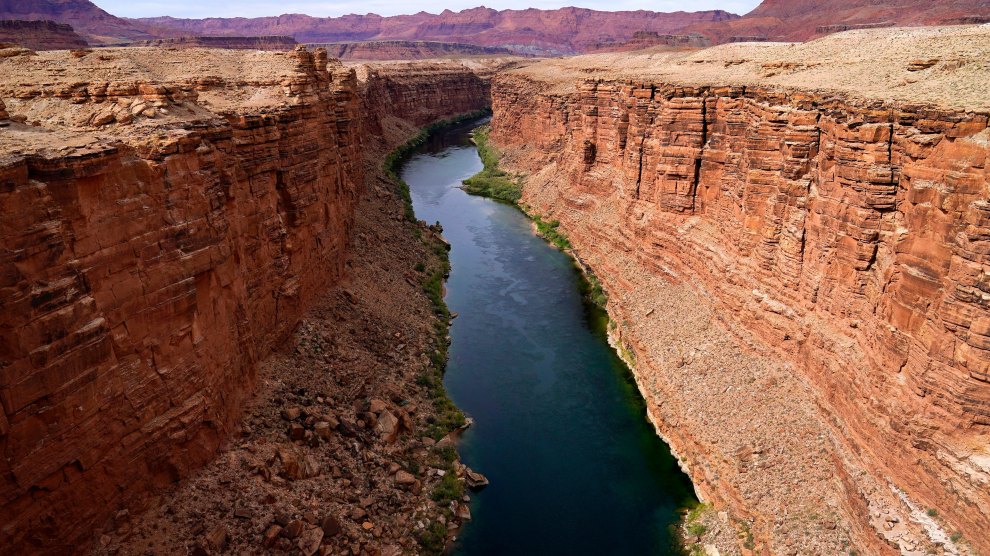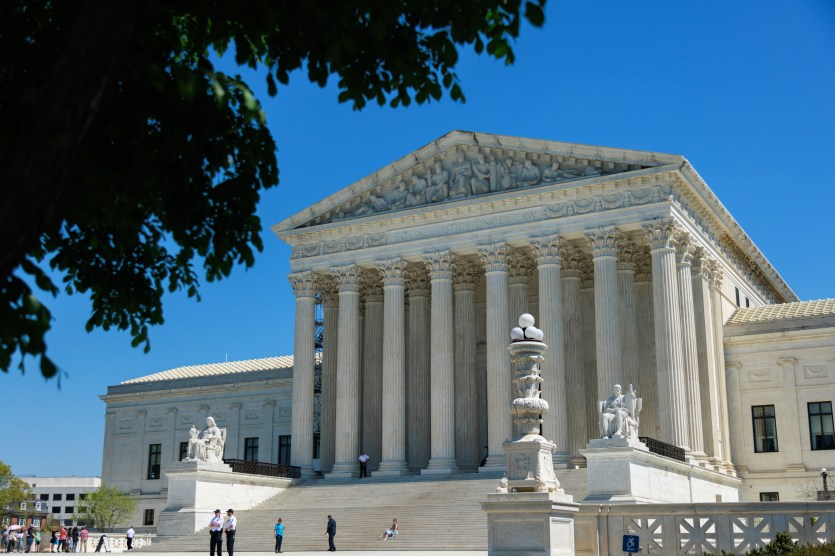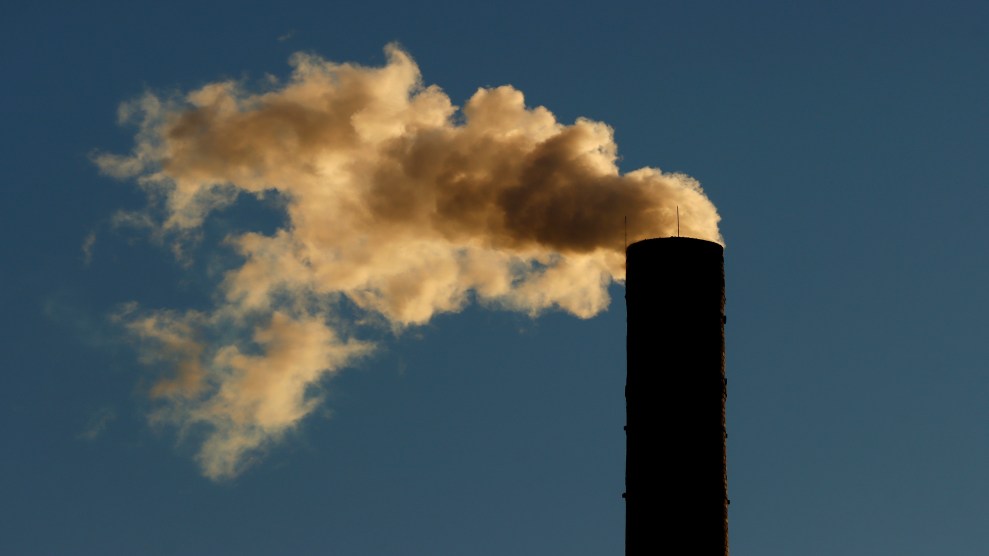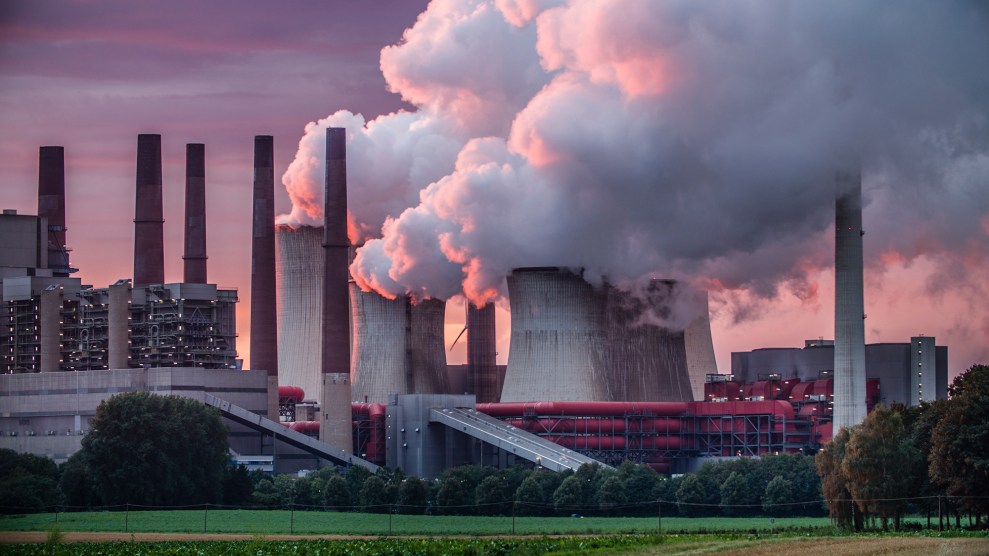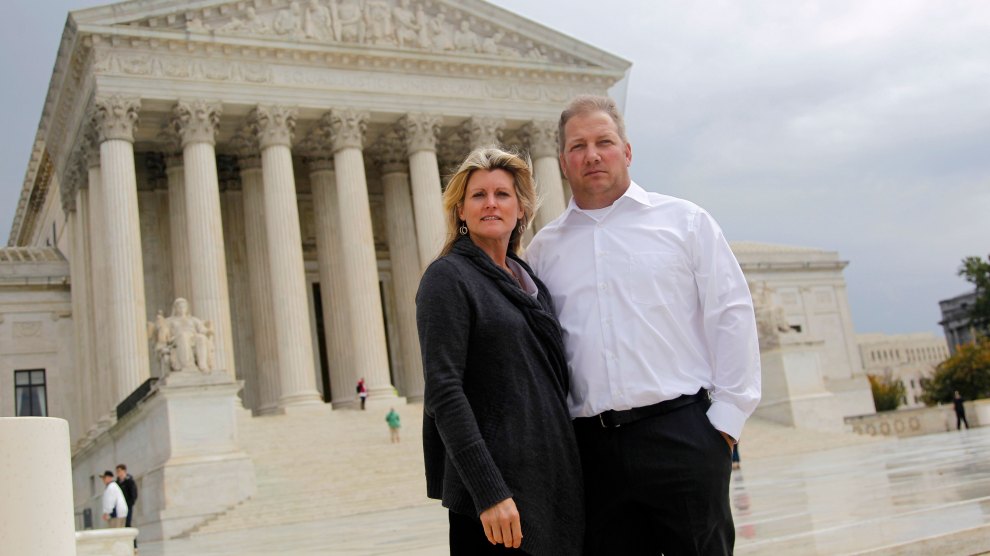
Michael and Chantell Sackett, outside the Supreme Court in 2011, have waged a long legal battle to build a house on wetlands near one of Idaho's largest lakes.Haraz N. Ghanbari/AP
This story was originally published by the Guardian and is reproduced here as part of the Climate Desk collaboration.
The scope of a landmark law to protect America’s waterways has been shrunk by the US Supreme Court, which has sided with an Idaho couple who have waged a long-running legal battle to build a house on wetlands near one of the state’s largest lakes.
In a ruling passed down on Thursday, the conservative-dominated court decided that the federal government was wrong to use the Clean Water Act, a key 50-year-old piece of legislation to prevent pollution seeping into rivers, streams and lakes, to prevent the couple building over the wetland beside Priest Lake in Idaho.
President Joe Biden said in a statement that the ruling upends the legal framework used for decades to combat water pollution and that his administration will “use every legal authority we have to protect our nation’s waters.”
“It puts our nation’s wetlands—and the rivers, streams, lakes and ponds connected to them—at risk of pollution and destruction, jeopardizing the sources of clean water that millions of American families, farmers and businesses rely on,” Biden said of the ruling.
Earthjustice, an environmental group that has opposed the case reaching the Supreme Court, has said that half of all the wetlands in the contiguous US, ecosystems prized as habitat for fish, waterfowl and other wildlife as well as being critical natural purifiers of water, will now lose their protections under the Clean Water Act.
Justice Samuel Alito, writing for himself; Chief Justice John Roberts; and justices Clarence Thomas, Neil Gorsuch, and Amy Coney Barrett; ruled that the Clean Water Act can only protect “wetlands with a continuous surface connection to bodies that are waters of the United States in their own rights.”
The judgment is the latest blow to environmental regulations dealt by the supreme court, which last year curtailed the government’s ability to limit greenhouse gas pollution from power plants. Environmental groups have accused the court, along with Republican-led states and industry interests, of threatening bedrock protections to nature in the US.
The justice’ decision in effect overhauls the definition of whether wetlands are considered “navigable waters” under the act and are therefore federally protected. This criticism was echoed by Elena Kagan, one of the more liberal supreme court justices, who wrote in a dissent to the decision that the court’s majority had appointed itself “as the national decision maker on environmental policy.”
Brett Kavanaugh, one of the conservative justices, sided with the three liberals to warn that the court will “leave some long-regulated adjacent wetlands no longer covered by the Clean Water Act, with significant repercussions for water quality and flood control throughout the United States.”
Conservation groups expressed dismay at the ruling. “Federal protections that don’t depend on local politics or regional polluter influence are essential to vulnerable and disadvantaged communities nationwide,” said Jim Murphy, director of legal advocacy for the National Wildlife Federation. “The court’s ruling removes these vital protections from important streams and wetlands in every state. We call on both Congress and state governments to step in, plug the gap, and protect our threatened waters and the people that depend on them.”
